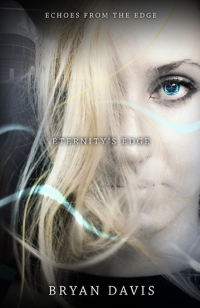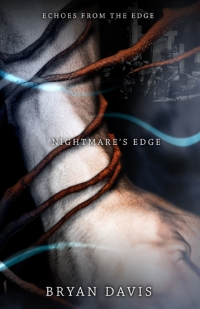How Huge the Night by Heather Munn and Lydia Munn is the historical story of several teens and their struggle during World War 2. The mother-daughter team and newly published authors have done a stellar job with portraying the history surrounding a little French town's response to the horrible oppression of the Nazis.
Julien Losier wants to make a difference in the world- he wants to do
something as Germany prepares to invade southern France. But what can he do in a little countryside town when he was once in France? Although Julien can't change the world, he begins to learn the right thing to do when a Jewish boy, Benjamin, moves in with Julien's family.
Nina is a Jewish girl who is determined to escape her home in Austria. Fueled by her father's dying wish that she keep herself and her brother safe, Nina poses as a boy and runs to the border. However, evil men and terrible events rob Nina of her joy and health until she can trust no one. Meanwhile, the Nazis attack France and take over Julien's city. All hope seems lost, and families all over France are being torn apart. Nina and her brother eventually travel to Julien's house in desperate need of shelter, but Julien's family could be in grave danger by sheltering two Jews! This is Julien's chance to make a difference, but is he willing to live with the consequences?
This book doesn't sugarcoat. I rarely find a historical fiction book that isn't filled with frills, giggles, and flippant romantic banter. Although I do like to read historical romance books, and they have their place, this book was like a breath of fresh air. Yes, at times this book did seem melancholy, but a child's fear of his town totally being taken over revealed something much deeper than a woman mourning because she cannot marry her beau. The historical elements are vividly portrayed, yet the authors brilliantly keep this book readable for teens. Julien has to deal with some tough bullies and the ridicule he could face by standing up against them. While keeping this story relatable to teens, the authors show some of the frightening and terrible aspects of life that many people today don't have to deal with. Such things as hunger, war, prejudice, and helplessness are core to this book. I love how different yet relatable this story is.
A few things to be aware of is that it is hinted that a man tries to take advantage of Nina when he realizes she is a girl. The words are vague in that scene, so there's not much to worry about. In fact, I was confused when I first read it, and it wasn't until later that Nina bluntly states that the man was trying to attack her in an awful way. Also, a mild curse word in French is used along with one use of "crap". As for the actual writing style, French is used quite often in this book along with some other languages. I wish there was a glossary in this book, but unfortunately there is not.
The authors do provide one, however, on the book's website. Some of the scenes move really fast, and I was confused at times. I think maybe the authors were intentionally being vague, but several times I was just confused.
All in all, I rate this book four out of five stars. Recommended to teens looking for something different in historical fiction!
Specifics (
from amazon.com):
~Paperback: 304 pages
~Publisher: Kregel Publications (March 9, 2011)
~Book Website:
http://www.howhugethenight.com/
Thanks to the publisher for providing me with a free copy of this book for reviewing purposes.
Excerpt from the book!!!
From Chapter 23
Thursday the power came back on. They sat in the living room, around the radio that crackled with static; they looked at each other, and then away. The room grew quiet as the announcer began to speak.
“Since Mussolini’s declaration of war on France two days ago, Italian troops are pushing west—”
Mama was on her feet. “The thief!” she hissed. “The backstabber, the coward!” Her face was red. Everyone was staring. She sat down.
Papa looked at her. “Saw his chance, I guess.”
“He’s a shame to his nation,” Mama snapped. Julien stared. Then they heard the shift in the announcer’s voice and turned sharply to the radio.
“German troops are approaching Paris at a rapid pace. As we speak, the vanguard is reported to be fifteen kilometers from Versailles. This will be our last broadcast for a while.”
They did not look at each other. The silence was total.
“Today Paris has been declared an ‘open city.’ Our military will not defend it. This decision was made to avoid bombardment and the great destruction and loss of life that it entails. . . .”
Julien realized he had not been breathing. It was an amazing thing, breathing. Tears shone in Mama’s eyes.
“They won’t bomb Paris,” said Papa quietly.
“They won’t bomb Paris,” Mama whispered.
Benjamin stood, his face very still. He walked slowly to the door and took the stairs.
Julien waited, breathing, seeing Paris; seeing Vincent and his mother look up out of their second-floor window at a clear blue sky. He waited until the news ended, until they had read a psalm that said The Lord has delivered.
Then he followed Benjamin.
Benjamin’s door was closed. Julien hesitated, biting his lip, and went into his own room.
He looked out the window in the fading light. They wouldn’t defend it. This was it, then. What Pastor Alex said was true. German tanks would roll down the Champs-Elysées for real in just a couple days. Then the boches would come here. And they would stay.
He pulled Vincent’s last letter out from under his nightstand. I can’t believe you almost died, it said. That’s crazy. He got up, and went and knocked on Benjamin’s door.
No answer.
“Benjamin? You all right?”
“Fine.”
Julien opened the door. Benjamin turned quickly, scowling.
“Did I say you could come in?”
“Well sorry,” Julien growled. How am I supposed to help when he’s like this? “Just wanted to say good night.”
“Good night then.”
“Look, it’s not as bad as it could have been, okay? They could have bombed the place to shreds like Ro—” He bit his tongue.
“You’re right,” said Benjamin, looking away. “That’s good for your relatives. I’m glad.”
“And your parents!”
“Nothing’s good for my parents.” His voice was toneless. “Look, Julien, we can talk about this in the morning. I need to go to bed.”
Julien knew when to quit. He turned away. “Sleep well.”
“You too.”
But he couldn’t. He turned and turned in his bed, twisting the sheets.
He got up and looked out at the crescent moon and the stars high over Tanieux, so white, so far, always the same; they would still be there when the Germans were here; they would still be there all his life. They were still there over Rotterdam, too. It didn’t make any difference.
When he finally slept, he dreamed: Paris on the fourteenth of July, the fireworks, bursts of blue, of gold, of red above the city. A whirling rocket going up with a hiss and a bang. Then a louder bang. Then a bang that threw up a great shower of dirt and stones, and people screaming, people running as the shells began to fall—
He woke, and lay shivering. He got up to close the window. The stars shone down like cold eyes.
He heard a faint scratching. Mice maybe. A floorboard creaked. He listened.
And he heard it. Very slow, stealthy footsteps going down the stairs.
He sat up slowly. Magali or Benjamin. Tiptoeing down the stairs to the kitchen, wishing there was something to eat. . . . He got out of bed and leaned out the window, watching for the faint light that would come through from the kitchen. No light came.
But on the ground floor, the heavy front door opened, and a dark shape slipped out into the street. A shadow with a suitcase in its hand.
He ran across the hall and threw open Benjamin’s door. A neatly made bed, a letter on the pillow. He grabbed it, ran back to his room, jerked his pants on over his pajamas, and ran downstairs in his socks. He’d catch him. Benjamin was on foot. He had to catch him. He scrawled on the flip side of the note, I’ve gone after him, pulled on his shoes and jacket, and flew down the stairs and into the dark.
He raced down the shadowed street and stopped at the corner, heart pounding, looking both ways. North, over the hill: the road to St. Etienne. A train to Paris, like he’d said? There were no trains now. Or south—south to where? Oh Lord if I choose wrong I’ll never find him.
Think. What would he do if it were him? He’d go south—north was suicide, but—he didn’t know, he didn’t know Benjamin. Who did? Nothing is good for my parents, he’d said—he didn’t seem to even care that Paris wouldn’t be bombed—
Because his parents weren’t in Paris.
Julien turned, suddenly sure, and ran.
The Kellers had left Germany because of Hitler and his people. Would they stay in Paris and wait for them? “Let’s walk south,” Benjamin had said—and that stupid map—he should have guessed.
He ran, breathing hard, his eyes on the dark road ahead. Oh God. Oh Jesus. Don’t let me miss him please—please—
He broke free of the houses; the Tanne gleamed in front of him under the splintered moon, cut by the dark curve of the bridge. He froze. He ducked into the shadows and breathed.
There on the bridge was a slender figure leaning on the parapet, looking down at the dark water.
Oh God. Oh Jesus. Now what?
Benjamin turned and took a long, last look at Tanieux. Then he adjusted his backpack, picked up his suitcase, and walked away.
Julien slipped out of the shadows and up to the bridge, his heart beating help me Jesus help me, his mind searching for words. Come home. And if he said no? Drag him? Help me Jesus. He was across the bridge, ten paces behind Benjamin; he broke into a silent run on the grassy verge of the road. He caught up to him. Laid a hand on his arm.
“Benjamin.”
Benjamin whirled, eyes wild in the moonlight. They stared at each other. “Why.” said Julien. “Tell me why.” His voice was harder than he meant it to be.
“Let me go.”
“No.” He tightened his grip on Benjamin’s arm.
Benjamin tried to pull away. “Julien, let me go. You have no idea. You have no idea what they’re like.”
“The boches?” This time his voice came out small.
“The Nazis, Julien. Ever heard of them? Yeah, you heard they don’t like Jews—I don’t think any of you people understand.” The sweep of his arm took in the school and the sleeping town. “Your parents are great, Julien—offering shelter and all—they really are. But they don’t know. Yet.”
But they do. They know. “Know what? What’ll they—do?”
“I’m not waiting around to find out.” His face was white and deadly serious. “Trust me on this, Julien. They are coming here and when they do, it’s better for you if I’m long gone.” I believe it is very dangerous to be a Jew in Germany. And soon—
Julien stood silent. The night wind touched his face; the hills were shadows on the horizon where they blotted out the stars. Suddenly he felt how large the world was, how huge the night, how small they stood on the road in the light of the waning moon. Ahead, the road bent into the pine woods, and in his mind, Julien saw Benjamin walking away, a small form carrying a suitcase into the darkness under the trees. His fingers bit into Benjamin’s arm.
“I don’t care,” he said savagely. “Where would you go?”
Benjamin said nothing; the moonlight quivered in his eyes as they filled with tears. He turned his head away. “I don’t know.” His voice shook.
Julien caught him by the shoulders, gripped him hard. “Well I do,” he said fiercely. “You’re coming home.”




















.jpg)







